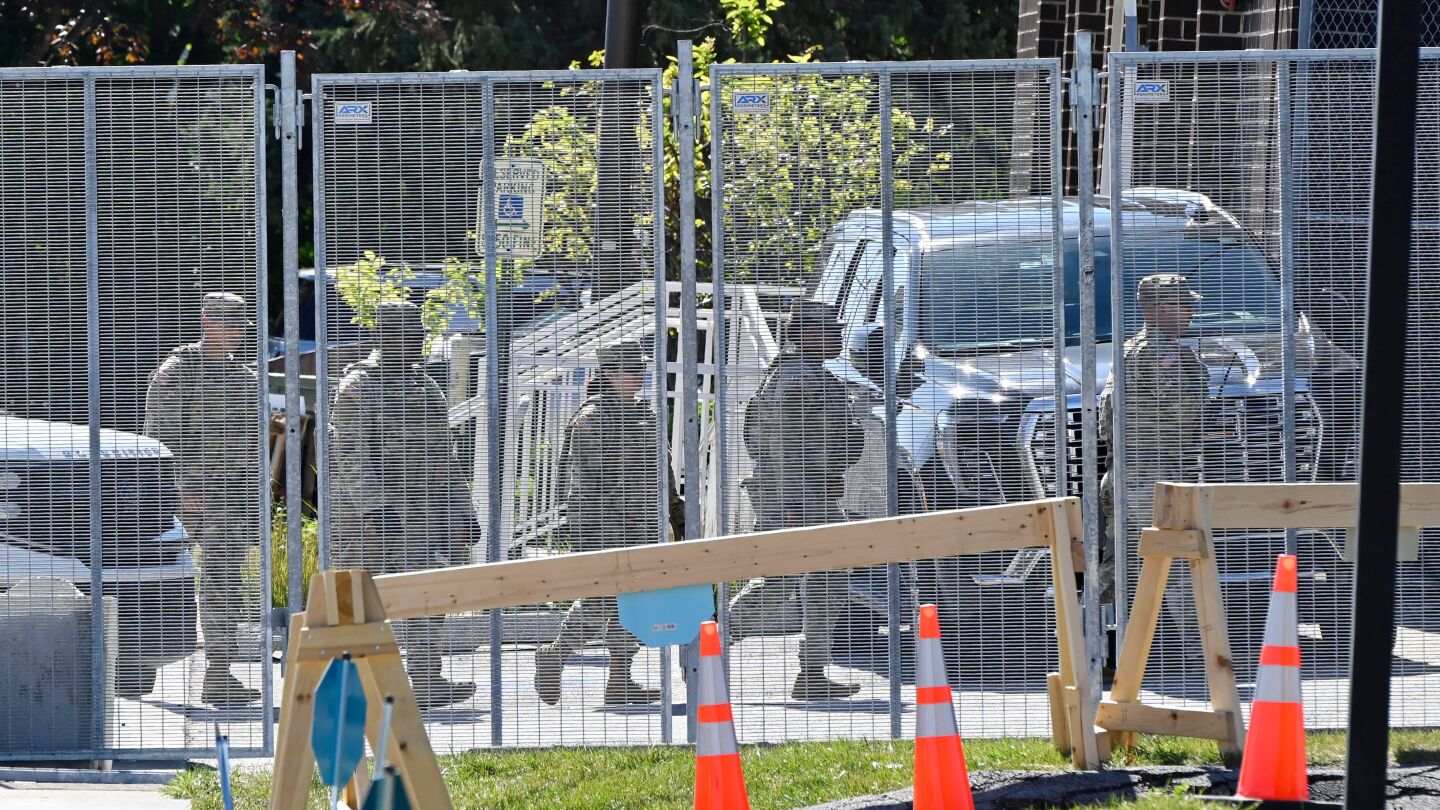National Guard troops were expected Friday to begin patrolling in Memphis, a day after a federal judge in Illinois blocked the deployment of troops in the Chicago area for at least two weeks.
The on-again, off-again deployments are the result of a political and legal battle over President Donald Trump’s push to send the National Guard to several U.S. cities. His administration claims crime is rampant in those cities, despite statistics not always backing that up.
If a president invokes the Insurrection Act, they can dispatch active duty military in states that fail to put down an insurrection or defy federal law, but the judge in Chicago said Thursday she found no substantial evidence that a “danger of rebellion” is brewing in Illinois during Trump’s immigration crackdown.
The ruling offered a victory for Democratic officials who lead the state and city.
“The court confirmed what we all know: There is no credible evidence of a rebellion in the state of Illinois. And no place for the National Guard in the streets of American cities like Chicago,” Gov. JB Pritzker said.
In Tennessee, where Republican Gov. Bill Lee supports the deployment, the troops are expected to serve as “additional eyes and ears” across Memphis, supporting local, state and federal agencies, according to a city website.
The order in Illinois is set to expire Oct. 23 at 11:59 p.m. U.S. District Judge April Perry set an Oct. 22 hearing to determine if it should be extended for another 14 days.
In her ruling, she said the administration violated the 10th Amendment, which grants certain powers to states, and the 14th Amendment, which assures due process and equal protection.
It wasn’t clear what the 500 Guard members from Texas and Illinois would do next. They were mostly stationed at a U.S. Army Reserve Center in Elwood, southwest of Chicago. A small number on Thursday were outside a U.S. Immigration and Customs Enforcement building in Broadview, which for weeks has been home to occasional clashes between protesters and federal agents.
Officials at U.S. Northern Command directed questions to the Department of Defense, which cited its policy of not commenting on ongoing litigation. The troops are under the U.S. Northern Command and had been activated for 60 days.
U.S. Justice Department lawyer Eric Hamilton had said Thursday that the Guard’s mission would be to protect federal properties and government law enforcers in the field, not “solving all of crime in Chicago.”
The city and state have called the deployments unnecessary and illegal.
Also Thursday, a federal appeals court heard arguments over whether Trump had the authority to take control of 200 Oregon National Guard troops. The president had planned to deploy them in Portland, where there have been mostly small nightly protests outside an ICE building.
A judge on Sunday granted a temporary restraining order blocking the move. Trump had mobilized California troops for Portland just hours after the judge first blocked him from using Oregon’s Guard.
Two dozen other states with a Democratic attorney general or governor signed a court filing in support of the legal challenge by California and Oregon. Twenty others, led by Iowa, backed the Trump administration.
Chicago’s federal court issued other decisions this week related to immigration enforcement. In one, a judge said immigration agents have repeatedly violated a 2022 consent decree outlining how ICE can make so-called warrantless arrests. That decree requires ICE to show documentation for each arrest it makes for people besides those being targeted.
The president previously sent troops to Los Angeles and Washington.
In a California case, a judge in September said the deployment was illegal. By that point, just 300 of the thousands of troops sent there remained and the judge did not order them to leave.
___
Associated Press writers Ed White in Detroit, Geoff Mulvihill in Philadelphia, Adrian Sainz in Memphis, Tennessee, and Konstantin Toropin in Washington contributed to this report.
